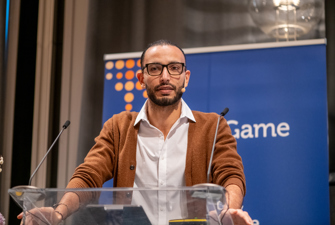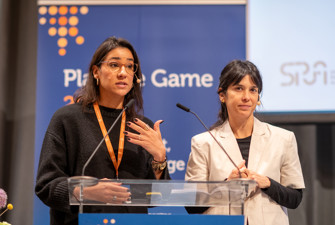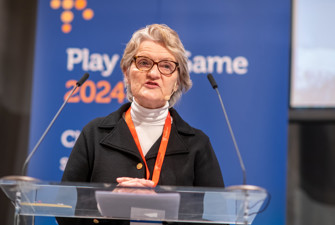In-play bets and live data collection make new sports vulnerable to match-fixing
While betting markets are expanding to new sports and lower leagues in football, the risk of match-fixing rises. However, the police is struggling to find their way in investigating and prioritising match-fixing cases.
Match-fixing has existed as long as sport. Today, incentives to fix are usually related to the gambling industry, which is expanding the variety of bets it offers during play.
According to journalist and researcher Steve Menary, the recent rise of in-play betting and the collection of related data has had a significant effect on match-fixing and manipulation.
“In Europe, around sixty percent of betting is now in-play,” Menary said. “This is only possible with live data that tracks events such as goals, bookings and corners as they occur. This data is supplied by companies that collect it and sell it on to betting companies.”
“Professional sports are now beginning to understand the value of this data. They are agreeing exclusive supply contracts with individual data companies, which lock out rivals," he said.
He explained that the exclusive supply contracts mean that rival companies are looking to sell data from competitions where no exclusive deals are in place. That has extended betting markets to sports such as frisbee and table football, as well as poorly organised football friendlies and league games as low as level eight in England and Germany.
"With more low-level games available to bet on, opportunities for match-fixing increase,” he pointed out.
Integrity services can be a gateway to commercial data deals
Menary also spoke about how data companies have started working with sports federations and clubs to monitor betting markets for signs of suspicious activities.
“Offering these integrity services is often a gateway to obtaining commercial data deals, which are significantly more valuable,” he said.
At sports organisations where corruption exist, data on suspicious activities can potentially be leaked to criminals who are then able to shift their activities elsewhere.
“There are many good people at these data companies doing good work in trying to protect the integrity of sport. But these are unregulated commercial businesses where the ultimate responsibility is to the shareholders,” Menary said.
Data companies also produce reports on other suspicious elements of games, including the performance of players, Menary said.
If an incident or overall performance is deemed significantly suspicious, details are forwarded to the relevant authorities who may or may not take action. The alerts sometimes leak into the public sphere, which can lead to intimidation of the players and officials under suspicion. In other cases, alerts can be used to build cases against players without their knowledge.
“A player’s poor performance could be due to many reasons,” Menary said. “Who knows what is running through their mind before a match? Maybe their wife left them that morning. Maybe their car was stolen.”
“This is not to dismiss the input of data companies but to put it in context,” Menary said. “These alerts can form a valuable foundation to start an investigation. But they are not conclusive evidence.”
Policing is a finite resource
Europol liaison officer Arthur Whitehead offered a law enforcement perspective on match-fixing.
“Policing is a finite resource,” he said. “When a case comes to me, I have to go to my bosses and present it as a standalone case to get resources. It competes against everything else from traffic offenses to terrorism.”
“One of the things missing from the conversation is the complexity of law enforcement. From a UK perspective, we split crime into three levels – local, regional and serious and organised crime. What level is match-fixing? Are a few bets at a local match the responsibility of the local force?” he asked.
"We have to be really laser-focused when we talk about crime and sport. What should we focus on? If we dedicate resources to a match-fixing investigation, this means that something else will not be looked at. We need to make the argument in the right way.”
Whitehead also pointed to the difficulties for the police of comprehending what gambling entails and finding a common language.
“We are not experts in match-fixing or gambling. If you are not a gambler yourself, it can be really complex to understand. I am not a gambler and I really struggle.”
“Finding a common language is difficult,” he continued.
“Words like integrity, manipulation, where do they sit within legislation? How do you explain things in terms that law enforcement will understand? The Asian betting market? What is it? Is that Malaysia? China? We need better definitions.”
Frea De Keyzer, a Ph.D student at KU Leuven, referred to issues that can hinder legal enforcement strategies. As an example, she cited Operation Clean Hands, a high-profile Belgium investigation into money laundering, bribery and corruption in football.
Although criminal procedures are still ongoing, some sanctions have already been issued and overturned by the courts due to a lack of clarity and due process. De Keyzer pointed to issues in the co-operation between stakeholders, the standardisation of definitions, and regulatory coherence.
Cleo Schyvinck, a postdoctoral researcher at Ghent University, has studied the effectiveness of national platforms in tackling match-fixing. Her research showed that platforms where leadership and co-ordination are shared are more effective than those where responsibilities are specifically designated.







